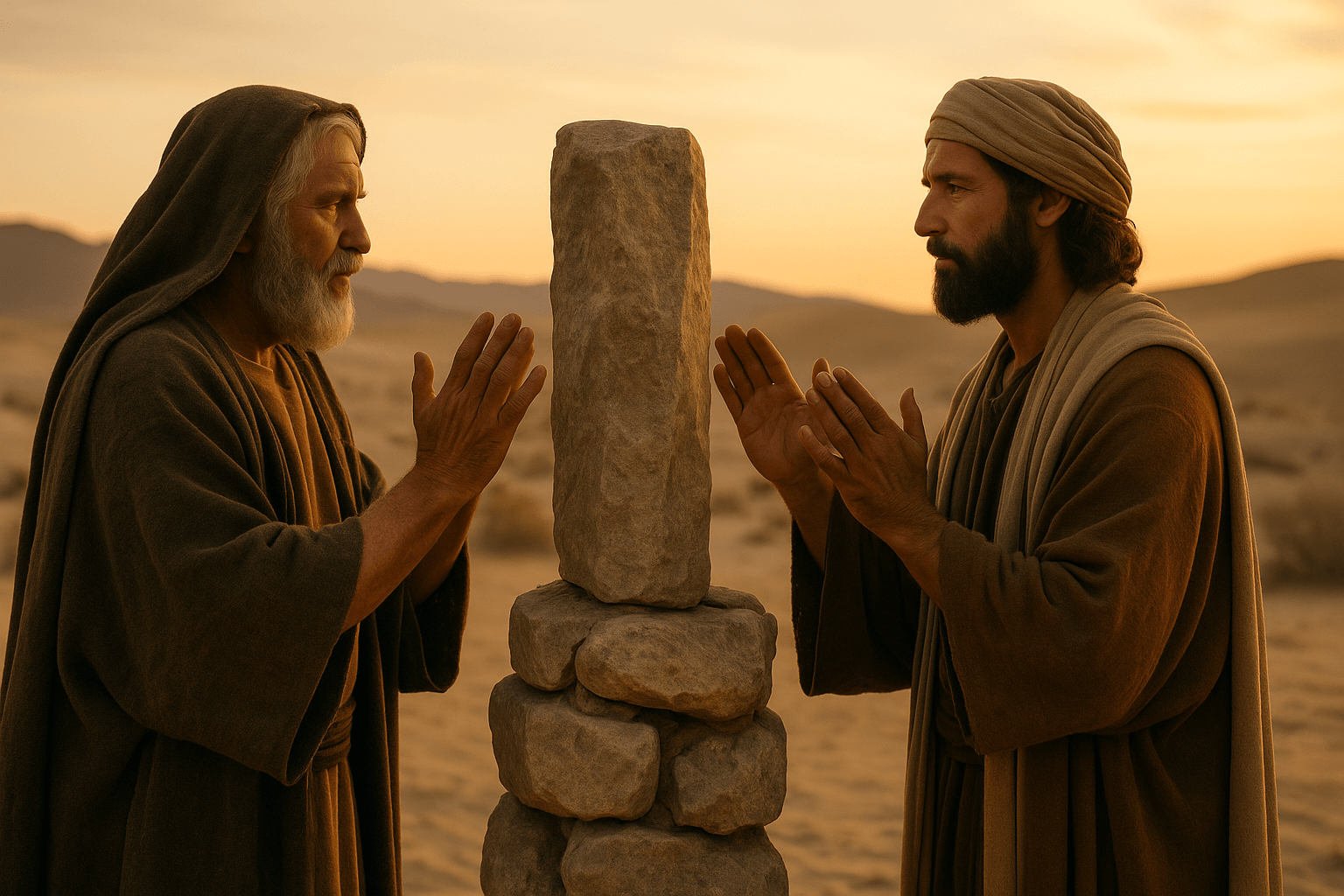Laban is a significant figure in the Bible, especially in the stories of Abraham's family. He is the brother of Rebekah, Isaac's wife, and the father of Leah and Rachel, the two women who played pivotal roles in the lives of Jacob and the Twelve Tribes of Israel. His actions and relationships with key biblical characters give us insights into the human experience, marked by both faith and frailty. Here are 10 interesting facts about Laban in the Bible.
1. Laban Was the Brother of Rebekah
Laban’s story is closely linked to his sister Rebekah, who became the wife of Isaac. When Abraham sent his servant to find a wife for Isaac, it was Rebekah’s family that was chosen. Laban’s involvement in this process shows his importance in the genealogical and covenantal line that would lead to the twelve tribes of Israel.
Genesis 24:29 “Now Rebekah had a brother named Laban, and he hurried out to the man at the spring.”
2. Laban Is Known for His Deceptive Ways
One of the most famous aspects of Laban’s character is his deceitful nature, particularly when he tricked Jacob into marrying Leah instead of Rachel. Laban’s actions caused significant strife in Jacob’s life, which is a cautionary tale about dishonesty in relationships.
Genesis 29:25 “When morning came, there was Leah! So Jacob said to Laban, ‘What is this you have done to me? I served you for Rachel, didn’t I? Why have you deceived me?’”
3. Laban Trick Jacob into Working Longer
After Jacob agreed to work seven years for Rachel’s hand in marriage, Laban betrayed him by giving him Leah instead. Jacob was then forced to work another seven years for Rachel. This story of deception and manipulation reflects the complicated family dynamics that unfolded in Laban’s household.
Genesis 29:27 “Finish this daughter’s bridal week; then we will give you the younger one also, in return for another seven years of work.”
4. Laban's Wealth Was Built Through Jacob's Labor
Laban’s wealth grew substantially through Jacob’s work, especially when Jacob tended Laban’s flocks. However, Laban’s greed caused him to try to change Jacob’s wages multiple times, even though Jacob’s work brought great prosperity to Laban’s household.
Genesis 30:31-34 “What shall I give you?” he asked. “Don’t give me anything,” Jacob replied. “But if you will do this one thing for me, I will go on tending your flocks and watching over them.”
5. Laban Pursued Jacob When He Left
When Jacob left Laban’s household, taking his wives, children, and livestock with him, Laban pursued him. However, God warned Laban in a dream not to harm Jacob. Laban’s pursuit was driven by both his desire for his family and his wealth.
Genesis 31:24 “But God came to Laban the Aramean in a dream at night and said to him, ‘Be careful not to say anything to Jacob, either good or bad.’”
6. Laban’s Family Connections Were Important to the Story of Israel
Laban’s family connections were critical to the broader narrative of Israel's founding. His daughters, Rachel and Leah, became the wives of Jacob, the father of the twelve tribes of Israel. This relationship formed a key part of the covenant God made with Abraham and his descendants.
Genesis 29:16 “Now Laban had two daughters; the name of the older was Leah, and the name of the younger was Rachel.”
7. Laban Was a Skilled Shepherd
Laban is portrayed as a skilled shepherd, particularly in his management of flocks. Jacob worked with Laban for many years, taking care of his sheep and cattle, which would have required extensive knowledge of livestock care and breeding.
Genesis 30:31 “What shall I give you?” Laban asked. “Don’t give me anything,” Jacob replied. “But if you will do this one thing for me, I will go on tending your flocks and watching over them.”
8. Laban and Jacob Made a Covenant
When Jacob decided to leave Laban’s household, they made a covenant as a peaceful agreement between them. They set up a stone pillar as a witness to this covenant, calling on God as a witness to their promise to part in peace.
Genesis 31:44-54 “Come now, let’s make a covenant, you and I, and let it serve as a witness between us.”
9. Laban Was a Deceiver but Also Cared for His Family
Despite his deception, Laban's actions at times suggest that he did care for his daughters and family, even though his motivations were often driven by self-interest. His decision to pursue Jacob after he left might have been fueled by his desire to keep his daughters and grandchildren close.
Genesis 31:50 “If you mistreat my daughters or if you take any wives besides my daughters, although no one is with us, remember that God is a witness between you and me.”
10. Laban’s Influence on the Growth of the Twelve Tribes
Laban’s daughters, Leah and Rachel, are essential figures in the birth of the twelve tribes of Israel. Leah bore six sons, and Rachel bore two, while her maidservant and Leah’s maidservant each bore two more. This makes Laban’s household a key part of Israel’s patriarchal history.
Genesis 35:23-26 “The sons of Leah: Reuben the firstborn of Jacob, Simeon, Levi, Judah, Issachar, and Zebulun. The sons of Rachel: Joseph and Benjamin.”
























